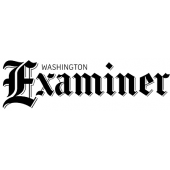
The Washington Examiner
By Rob Crilly
June 25, 2019
A U.S.-backed workshop to kick-start Israeli-Palestinian talks with a $50 billion investment is a first step to Middle East peace despite the absence of government figures from either side, according to an adviser to the king of Bahrain.
The “Prosperity to Peace” meeting in the tiny Gulf kingdom is designed to mark the first stopping point on the Trump administration’s political road map to resolving the Israeli-Palestinian conflict.
However, Israeli and Palestinian officials will be absent from the event in the Bahraini capital Manama, and analysts say the proposals fail to address difficult political questions.
Rabbi Marc Schneier, a special adviser to the Bahraini king, said the workshop had still managed to bring together regional powers, including Qatar with its archrivals Saudi Arabia and the United Arab Emirates.
“Look, I’m disappointed there are no Palestinian officials, there are no Israeli officials. But I choose to magnify the blessings and not to exaggerate the troubles,” he said. “The blessings are that there’s a very powerful consortium of the United States, the Gulf States, and also Egypt, Jordan coming together to try to improve the economic and financial lot of the Palestinians.”
Jared Kushner, President Trump’s son-in-law and senior adviser, has spent the past two years laying the groundwork for a fresh push for peace.
The “Prosperity to Peace” plan envisages donors and investors contributing some $50 billion to the region, with more than half going to the Palestinian territories. Projects include a $5 billion transport corridor to connect Gaza with the West Bank.
With the fruits of peace and development within reach, runs the theory, it should be easier to bring the two sides together.
“If a society enjoys economic security, economic substance, good economic health, then there’s a better chance in terms of arriving at a final resolution to this conflict,” said Schneier. “That’s the trajectory.”
The proposals have won only lukewarm support at best. Analysts warn that the glossy brochures offer no path to solving tough questions about the future status of Jerusalem, or the borders of a Palestinian state, or even whether a two-state solution is viable.
Palestinians have denounced the plan entirely.
“Money is important. The economy is important. But politics are more important. The political solution is more important,” Palestinian President Mahmoud Abbas told reporters in the West Bank city of Ramallah, according to Reuters.
Hundreds of Palestinians took to the streets on the eve of the event to burn effigies of Trump and Bahrain’s king.
But Schneier said he believed a successful workshop could build momentum and bind Gulf nations closer together in pursuit of a resolution.
At the same time, the threat from Iran and changing geopolitical and economic factors meant the world had changed since previous peace attempts stalled, he added.
“It’s different because the situation in the Gulf is very different,” said Schneier. “In 2019, you have the threat of Iran, that is a common threat to the Gulf and to Israel. In 2019, the Gulf is going through its own economic transformation.
“There’s a diminishing demand for oil. They need to transform their economy.”
Copyright © 2025 Foundation For Ethnic Understanding. All rights reserved. | Privacy Policy